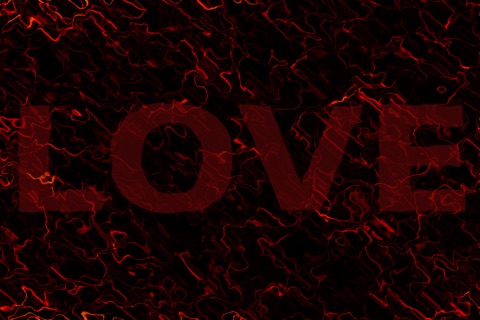
//This is AppArt! so an App made with artistic purposes. If you are not interested in Art dont download this App (or do it, but you wont like it...probably). //
About YDKWLI:
This work could have carried the subtitle “variations on a theme by Sarah Kane”, recognizing in this way that my first attempt to produce YDKWLI was made back in 2005 when I lived in Berlin and got to know the work of this English dramatist during a performance of "4.48 Psychosis" at the Schaubühne. This theatrical experience deeply impressed me and encouraged me to start a new project, which has now become YDKWLI (so this App).
The initial Berlin version of YDKWLI was made in a video format and already included the idea (still central in the current version) of permuting the word-pairs love/kill, you/me, and/or in apparently meaningful sentences that evolve in an endless loop aimed at distorting and ultimately destroying any possible meaning of the resulting mantra… but the work wasnt visually and technically very well executed, I think, which combined with the risk inherent in using so repeatedly the words love/kill (with such a potential for both drama and kitsch!) made the final outcome remind more of an indie telenovela rather than Sarah Kanes genuine brutalist-poetic approach, which on the other side I didnt want to merely reproduce or copy. So I regarded the result just a sketch for a future execution and decided to temporally put aside the idea.
Last summer (2013) I was reading a book about pre-Socratic thinkers. My interest in this subject had to do with the fascination of speculating about the mind-set of these thinkers and their usage of language in a time that has not yet abandoned myths as explanatory artifacts of the world, but has already started to introduce some rudimentary cause-effect patterns and rational elements in its discourse.
So (whatever the word love means and) whatever the word we translate as love might have signified in the ancient greek tongues of someone like Hesiod or Empedocles, it must have been something edged with the physical world, the elements, the deities, the myths and the inner world of emotions and feelings. So something impossible to translate and to understand for us now in the 21st century, I believe.
With these considerations and speculations in mind I happened to regain interest in the old and abandoned YDKWLI project, but this time with the intention of taking a more calmed, philosophical approach rather than visceral and emotional.
Now, I was no longer regarding the sentence “You dont know what love is” as if it was said by someone who seems to be in the possession of truth and invites with this recrimination to a confrontation with the person towards which anger is directed. Instead, I was now considering the sentence as an abbreviated form of saying “You don t know what love is. Me neither” and thought about it as if it was said by helpless figures floating through an empty space made of an indeterminate element who repeatedly say these words as a means of attracting attention and inspire empathy of other hypothetical someones that similarly float in the midst of that foggy-harmonic universe with a threatening ancestral wind that comes and goes as the only companion.
Cruz Landro
Barcelona, 2014



